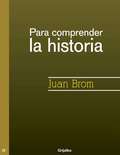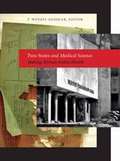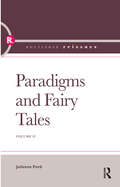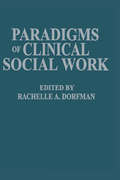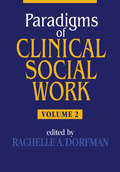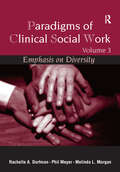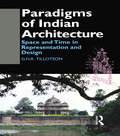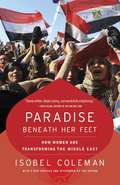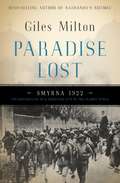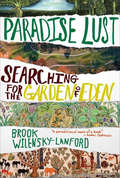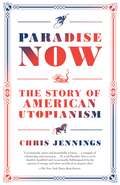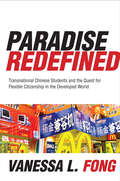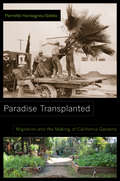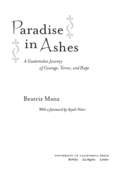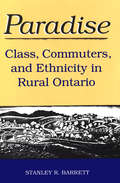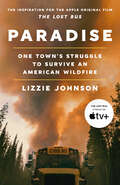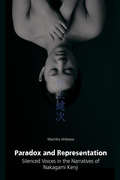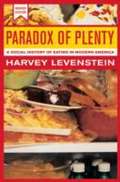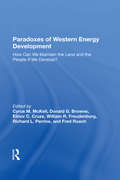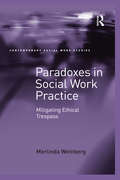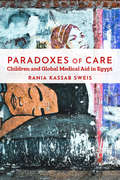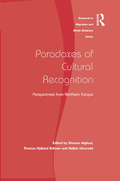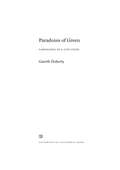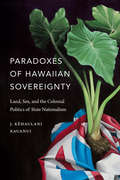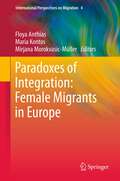- Table View
- List View
Para comprender la historia
by Juan BromEn el presente trabajo, cuidadosamente revisado y actualizado, Juan Brom busca "facilitar la comprensión de la Historia a quien desee una visión general y asimismo al que quiera considerar o profundizar en algún aspecto especifico". Ésta es, como todas sus obras, una invitación a reflexionar sobre nuestro pasado y sobre la importancia que éste tiene para entender mejor el mundo actual; para ello nos expone las características de la Historia como disciplina del saber, nos enseña los grandes periodos del desarrollo humano y nos da una visión de las regularidades que pueden desprenderse de su estudio. Este libro es un texto imprescindible para todos aquellos estudiosos de las Ciencias Sociales y para cualquier persona interesada en comprender mejor al ser humano y su historia. Para comprender la Historia tuvo su origen en el curso "Fundamentos de la Historia", que el autor impartió en 1962 en la universidad michoacana de San Nicolás de Hidalgo, y de 1965 a 1968 en la Universidad Autónoma de Puebla. Fue publicado en 1972 por la Editorial Nuestro Tiempo, alcanzando ahí, con varias revisiones, un tiraje total de 430.000 ejemplares hasta el año 2002, en que dejó de existir dicha editorial.
Para-States and Medical Science: Making African Global Health
by Paul Wenzel GeisslerIn Para-States and Medical Science, P. Wenzel Geissler and the contributors examine how medicine and public health in Africa have been transformed as a result of economic and political liberalization and globalization, intertwined with epidemiological and technological changes. The resulting fragmented medical science landscape is shaped and sustained by transnational flows of expertise and resources. NGOs, universities, pharmaceutical companies and other nonstate actors now play a significant role in medical research and treatment. But as the contributors to this volume argue, these groups have not supplanted the primacy of the nation-state in Africa. Although not necessarily stable or responsive, national governments remain crucial in medical care, both as employers of health care professionals and as sources of regulation, access, and - albeit sometimes counterintuitively - trust for their people. "The state" has morphed into the "para-state" -- not a monolithic and predictable source of sovereignty and governance, but a shifting, and at times ephemeral, figure. Tracing the emergence of the "global health" paradigm in Africa in the treatment of HIV, malaria, and leprosy, this book challenges familiar notions of African statehood as weak or illegitimate by elaborating complex new frameworks of governmentality that can be simultaneously functioning and dysfunctional.Contributors. Uli Beisel, Didier Fassin, P. Wenzel Geissler, Rene Gerrets, Ann Kelly, Guillaume Lachenal, John Manton, Lotte Meinert, Vinh-Kim Nguyen, Branwyn Poleykett, Susan Reynolds Whyte
Paradigms and Fairy Tales: Volume 2
by Julienne FordThis book is an introduction to the epistemology and practice of social science. It provides an exposition and critique of the ideology and practice of social science, and an examination of the professional social scientist as a manipulator of ideas and appearances.
Paradigms of Clinical Social Work
by Rachelle A. DorfmanThis fully-integrated volume written by the leading experts in the field of social work presents a wide rage of therapeutic paradigms. Especially noteworthy is the common framework provided for all paradigms discusse, thus facilitating comparison and contrast between each approach. These paradigms include cognitive, brief-oriented, and psychosocial therapies, as well as Adlerian theory and radical behavorism.
Paradigms of Clinical Social Work: Emphasis On Diversity
by Rachelle A. DorfmanThis book provokes sociological questions about the expanding number of paradigms of clinical social work and the application of clinical theory. It enhances clinical social workers' ability to make sense of people's lives so that we may help them in their struggles.
Paradigms of Clinical Social Work: Emphasis on Diversity
by Rachelle A. Dorfman-Zukerman Melinda L. Morgan Phil MeyerDesigned to mirror how social work theory and practice is taught, Paradigms of Clinical Social Work, Volume 3 presents new therapeutic models through an imaginary family experiencing common social work problems.
Paradigms of Indian Architecture: Space and Time in Representation and Design
by G. H. TillotsonThis book explores conceptions of Indian architecture and how the historical buildings of the subcontinent have been conceived and described. Investigating the design philosophies of architects and styles of analysis by architectural historians, the book explores how systems of design and ideas about aesthetics have governed both the construction of buildings in India and their subsequent interpretation.How did the political directives of the British colonial period shape the manner in which pioneer archaeologists wrote the histories of India's buildings? How might such accounts conflict with indigenous ones, or with historical aesthetics? How might paintings of buildings by British and Indian artists suggest different ways of understanding their subjects? In what ways must we revise our conceptions of space and time to understand the narrative art which adorns India's most ancient monuments? These are among the questions addressed by the contributors to the volume.
Paradise Beneath Her Feet: How Women are Transforming the Middle East
by Isobel ColemanThrough the remarkable stories of women from five countries, Coleman reveals how women, working within Islam, are transforming the Middle East.
Paradise Lost
by Giles MiltonOn Saturday, September 9, 1922, the victorious Turkish cavalry rode into Smyrna, the richest and most cosmopolitan city in the Ottoman Empire. The city’s vast wealth created centuries earlier by powerful Levantine dynasties, its factories teemed with Greeks, Armenians, Turks, and Jews. Together, they had created a majority Christian city that was unique in the Islamic world. But to the Turkish nationalists, Smyrna was a city of infidels. In the aftermath of the First World War and with the support of the Great Powers, Greece had invaded Turkey with the aim of restoring a Christian empire in Asia. But by the summer of 1922, the Greeks had been vanquished by Atatürk’s armies after three years of warfare. As Greek troops retreated, the non-Muslim civilians of Smyrna assumed that American and European warships would intervene if and when the Turkish cavalry decided to enter the city. But this was not to be. On September 13, 1922, Turkish troops descended on Smyrna. They rampaged first through the Armenian quarter, and then throughout the rest of the city. They looted homes, raped women, and murdered untold thousands. Turkish soldiers were seen dousing buildings with petroleum. Soon, all but the Turkish quarter of the city was in flames and hundreds of thousands of refugees crowded the waterfront, desperate to escape. The city burned for four days; by the time the embers cooled, more than 100,000 people had been killed and millions left homeless. Based on eyewitness accounts and the memories of survivors, many interviewed for the first time, Paradise Lost offers a vivid narrative account of one of the most vicious military catastrophes of the modern age.
Paradise Lust: Searching for the Garden of Eden
by Brook Wilensky-LanfordIt seems that ever since mankind was kicked out of the Garden of Eden for eating the forbidden fruit, we’ve been trying to get back in. Or at least, we’ve been wondering where the Garden might have been. St. Augustine had a theory, and so did medieval monks, John Calvin, and Christopher Columbus. But when Darwin’s theory of evolution permanently altered our understanding of human origins, shouldn’t the search for a literal Eden have faded away? Not so fast. In Paradise Lust, Brook Wilensky-Lanford introduces readers to the enduring modern quest to locate the Garden of Eden on Earth. It is an obsession that has consumed Mesopotamian archaeologists, German Baptist ministers, British irrigation engineers, and the first president of Boston University, among many others. These quixotic Eden seekers all started with the same brief Bible verses, but each ended up at a different spot on the globe: Florida, the North Pole, Ohio, China, and, of course, Iraq. Evocative of Tony Horwitz and Sarah Vowell, Wilensky-Lanford writes of these unusual characters and their search with sympathy and wit. Charming, enlightening, and utterly unique, Paradise Lust is a century-spanning history that will take you to places you never imagined.
Paradise Now
by Chris JenningsFor readers of Jill Lepore, Joseph J. Ellis, and Tony Horwitz comes a lively, thought-provoking intellectual history of the golden age of American utopianism--and the bold, revolutionary, and eccentric visions for the future put forward by five of history's most influential utopian movements. In the wake of the Enlightenment and the onset of industrialism, a generation of dreamers took it upon themselves to confront the messiness and injustice of a rapidly changing world. To our eyes, the utopian communities that took root in America in the nineteenth century may seem ambitious to the point of delusion, but they attracted members willing to dedicate their lives to creating a new social order and to asking the bold question What should the future look like? In Paradise Now, Chris Jennings tells the story of five interrelated utopian movements, revealing their relevance both to their time and to our own. Here is Mother Ann Lee, the prophet of the Shakers, who grew up in newly industrialized Manchester, England--and would come to build a quiet but fierce religious tradition on the opposite side of the Atlantic. Even as the society she founded spread across the United States, the Welsh industrialist Robert Owen came to the Indiana frontier to build an egalitarian, rationalist utopia he called the New Moral World. A decade later, followers of the French visionary Charles Fourier blanketed America with colonies devoted to inaugurating a new millennium of pleasure and fraternity. Meanwhile, the French radical Étienne Cabet sailed to Texas with hopes of establishing a communist paradise dedicated to ideals that would be echoed in the next century. And in New York's Oneida Community, a brilliant Vermonter named John Humphrey Noyes set about creating a new society in which the human spirit could finally be perfected in the image of God. Over time, these movements fell apart, and the national mood that had inspired them was drowned out by the dream of westward expansion and the waking nightmare of the Civil War. Their most galvanizing ideas, however, lived on, and their audacity has influenced countless political movements since. Their stories remain an inspiration for everyone who seeks to build a better world, for all who ask, What should the future look like?Advance praise for Paradise Now"Chris Jennings is a natural storyteller, and his Paradise Now, a five-part chronicle of America's nineteenth-century utopian dreamers and doers, is the most clear-eyed, sympathetic, and inspiring account I've read of this vital chapter in American history in decades."--Megan Marshall, Pulitzer Prize-winning author of Margaret Fuller: A New American Life "Jennings knows how to tell a story, and has the intellectual range to recover both the weirdness and wisdom of America's brief bout with utopian illusions and ideals."--Joseph J. Ellis, author of The Quartet: Orchestrating the Second American Revolution, 1783-1789"With good humor, a lively style, and a deep knowledge of the historical scholarship, Chris Jennings tells the goofy, heartbreaking tale of nineteenth-century Americans who believed they could bring about heaven on earth, and managed to live out futures that the rest of us haven't yet reached."--Caleb Crain, author of Necessary Errors"Readers who resent the constraints of a barren realism will value this deep-probing inquiry into the quest for new social possibilities."--Booklist (starred review) "Jennings proves an able guide to these groups. [His] comprehensive research makes for absorbing reading."--Kirkus ReviewsFrom the Hardcover edition.
Paradise Redefined
by Vanessa L. FongIn 2004, Vanessa Fong offered a groundbreaking ethnographic exploration of the social, economic, and psychological development of children born since China's one-child policy was introduced in 1979. Her book Only Hope left readers with a picture of stressed, ambitious adolescents for whom elite status was the ultimate goal, though relatively few were in a position to achieve it. In Paradise Redefined, Fong tracks the experiences of many in her initial cohort of Chinese only-children—now college-age—as they study abroad in Australia, Europe, Japan, New Zealand, North America, and Singapore. While earning a prestigious college education in China is the main path to elite status, study abroad provides an alternative channel by offering a particularly flexible "developed world" citizenship. This flexible citizenship promises the potential for greater happiness and freedom afforded by transnational mobility, but also brings with it unexpected suffering, ambivalence, and disappointment. Paradise Redefined offers insights into China's globalization by examining the expectations and experiences that affect how various Chinese students make decisions about studying abroad, staying abroad, immigration, and returning home.
Paradise Transplanted
by Pierrette Hondagneu-SoteloGardens are immobile, literally rooted in the earth, but they are also shaped by migration and by the transnational movement of ideas, practices, plants, and seeds. In Paradise Transplanted, Pierrette Hondagneu-Sotelo reveals how successive conquests and diverse migrations have made Southern California gardens, and in turn how gardens influence social inequality, work, leisure, status, and our experiences of nature and community. Drawing on historical archival research, ethnography, and over one hundred interviews with a wide range of people including suburban homeowners, paid Mexican immigrant gardeners, professionals at the most elite botanical garden in the West, and immigrant community gardeners in the poorest neighborhoods of inner-city Los Angeles, this book offers insights into the ways that diverse global migrations and garden landscapes shape our social world.
Paradise in Ashes: A Guatemalan Journey of Courage, Terror, and Hope
by Beatriz ManzParadise in Ashes is a deeply engaged and moving account of the violence and repression that defined the murderous Guatemalan civil war of the 1980s. In this compelling book, Beatriz Manz—an anthropologist who spent over two decades studying the Mayan highlands and remote rain forests of Guatemala—tells the story of the village of Santa María Tzejá, near the border with Mexico. Manz writes eloquently about Guatemala's tortured history and shows how the story of this village—its birth, destruction, and rebirth—embodies the forces and conflicts that define the country today. Drawing on interviews with peasants, community leaders, guerrillas, and paramilitary forces, Manz creates a richly detailed political portrait of Santa María Tzejá, where highland Maya peasants seeking land settled in the 1970s. Manz describes these villagers' plight as their isolated, lush, but deceptive paradise became one of the centers of the war convulsing the entire country. After their village was viciously sacked in 1982, desperate survivors fled into the surrounding rain forest and eventually to Mexico, and some even further, to the United States, while others stayed behind and fell into the military's hands. With great insight and compassion, Manz follows their flight and eventual return to Santa María Tzejá, where they sought to rebuild their village and their lives.
Paradise: Class, Commuters, and Ethnicity in Rural Ontario
by Stanley BarrettWhat was life like in the 1950s in small communities in Ontario? Lower-class and upper-class residents might have different memories of those days, but on one thing they would agree: it is a much different world in rural Ontario today. The old guard has lost most of its power, displaced partly by 'big brother' in the form of bureaucracy, and new comers from the city in search of affordable housing--even if it means commuting daily to work. Unlike their British-origin predecessors, the newcomers who have begun to appear in the countryside represent a wide range of ethnic and economic backgrounds.Paradise concentrates on the transformed class system of one community in rural Ontario. In a comparison of the decade following the First World War and the 1980s, Stanley R. Barrett analyses the changing face and structure of a town as it has had to adapt to modern social and economic realities. Particular attention is paid to the phenomenon of the commuter in search of affordable housing and the influx of immigrants of varied ethnic backgrounds, and the interaction between these newcomers and long-term residents. What is striking is just how massive the changes in small-town Ontario have been since the Second World War--to the extent of almost obliterating long-assumed distinctions between rural and urban society.
Paradise: One Town's Struggle to Survive an American Wildfire
by Lizzie JohnsonA cautionary tale for a new era of megafires, Paradise is the gripping true story of a town wiped off the map and the determination of its people to rise again. The inspiration for the Apple Original Film The Lost Bus, starring Matthew McConaughey and America Ferrera&“A tour de force story of wildfire and a terrifying look at what lies ahead.&”—San Francisco Chronicle (Best Books of the Year)On November 8, 2018, the people of Paradise, California, awoke to a mottled gray sky and gusty winds. Soon the Camp Fire was upon them, gobbling an acre a second. Less than two hours after the fire ignited, the town was engulfed in flames, the residents trapped in their homes and cars. By the next morning, eighty-five people were dead.As a reporter for the San Francisco Chronicle, Lizzie Johnson was there as the town of Paradise burned. She saw the smoldering rubble of a historic covered bridge and the beloved Black Bear Diner and she stayed long afterward, visiting shelters, hotels, and makeshift camps. Drawing on years of on-the-ground reporting and reams of public records, including 911 calls and testimony from a grand jury investigation, Johnson provides a minute-by-minute account of the Camp Fire, following residents and first responders as they fight to save themselves and their town. We see a young mother fleeing with her newborn; a school bus full of children in search of an escape route; and a group of paramedics, patients, and nurses trapped in a cul-de-sac, fending off the fire with rakes and hoses.In Paradise, Johnson documents the unfolding tragedy with empathy and nuance. But she also investigates the root causes, from runaway climate change to a deeply flawed alert system to Pacific Gas and Electric&’s decades-long neglect of critical infrastructure. The definitive firsthand account of the nation&’s deadliest wildfire in a century, Paradise is a riveting examination of what went wrong and how to avert future tragedies.Cover image © Apple TV+
Paradox and Representation: Silenced Voices in the Narratives of Nakagami Kenji
by Machiko IshikawaHow can the "voiceless" voice be represented? This primary question underpins lshikawa's analysis of selected work by Buraku writer, Nakagami Kenji (1946-1992). In spite of his Buraku background, Nakagami's privilege as a writer made it difficult for him to "hear" and "represent" those voices silenced by mainstream social structures in Japan. This "paradox of representing the silenced voice" is the key theme of the book. Gayatri Spivak theorizes the (im)possibility of representing the voice of "subalterns," those oppressed by imperialism, patriarchy and heteronomativity. Arguing for Burakumin as Japan's "subalterns," Ishikawa draws on Spivak to analyze Nakagami' s texts.The first half of the book revisits the theme of the transgressive Burakumin man. This section includes analysis of a seldom discussed narrative of a violent man and his silenced wife. The second half of the book focuses on the rarely heard voices of Burakumin women from the Akiyuki trilogy. Satoko, the prostitute, unknowingly commits incest with her half-brother, Akiyuki. The aged Yuki sacrifices her youth in a brothel to feed her fatherless family. The mute Moyo remains traumatized by rape. lshikawa' s close reading of Nakagami's representation of the silenced voices of these sexually stigmatized women is this book's unique contribution to Nakagami scholarship.
Paradox of Plenty: A Social History of Eating in Modern America
by Harvey LevensteinIn this sweeping history of food and eating in modern America, Harvey Levenstein explores the social, economic, and political factors that have shaped the American diet since 1930.
Paradoxes Of Western Energy Development: How Can We Maintain The Land And The People If We Develop?
by Cyrus M Mckell Donald G Browne Elinor C. Cruze William R FreudenburgProposed energy resource development in the arid western United States raises a number of potential problems for an environment that does not have a great deal of resiliency. Projected population increases associated with large-scale development activities may go beyond the capacity of small, isolated rural communities to absorb them; and constraints on western agricultural and industrial development—for example, demands for water already exceeding the supply available—also limit energy development. The authors of this wide-ranging book first evaluate western energy resources, then objectively discuss the consequences of development on the region’s physical and social environments. Among the questions they consider are: Who will reap the economic benefits of development, and who will bear the environmental costs? What will be the effects on the environment? The social structure? The quality of life? Are open spaces a national treasure in their present form, or should they be regarded as space available for development? What are the unique demands of reclamation in the arid west? And, given the recent trend of western states-rights militancy and shifts of population to the southwest, what impact will new federal and state policies have on resource management?
Paradoxes in Social Work Practice: Mitigating Ethical Trespass
by Merlinda WeinbergIn the helping professions, codes of ethics and decision-making models have been the primary vehicles for determining what constitutes ethical practice. These strategies are insufficient since they assume that shared meanings exist and that the contradictory universal principles of codes can be reconciled. Also, these tools do not emphasize the significance of context for ethical practice. This book takes a new critical theoretical approach, which involves exploring how social workers construct what is ’ethical’ in their work, especially when they are positioned at the intersection of multiple paradoxes, including that of two opposing responsibilities in society: namely, to care for others but also to prevent others from harm. The book is built on narratives from actual front-line workers and therefore is more applicable and grounded for practitioners and students, offering many suggestions for sound practice. It illustrates that an understanding of ethics differs from worker to worker and is heavily influenced by context, workers’ values, and what they take up as the primary discourses that frame their perceptions of the profession. While recognizing the oppressive potential of social work, the book is rooted in a perspective that ethical practice can contribute to a more socially just society.
Paradoxes of Care: Children and Global Medical Aid in Egypt (Stanford Studies in Middle Eastern and Islamic Societies and Cultures)
by Rania Kassab SweisEach year, billions of dollars are spent on global humanitarian health initiatives. These efforts are intended to care for suffering bodies, especially those of distressed children living in poverty. But as global medical aid can often overlook the local economic and political systems that cause bodily suffering, it can also unintentionally prolong the very conditions that hurt children and undermine local aid givers. Investigating medical humanitarian encounters in Egypt, Paradoxes of Care illustrates how child aid recipients and local aid experts grapple with global aid's shortcomings and its paradoxical outcomes. Rania Kassab Sweis examines how some of the world's largest aid organizations care for vulnerable children in Egypt, focusing on medical efforts with street children and out-of-school village girls. Her in-depth ethnographic study reveals how global medical aid fails to "save" these children according to its stated aims, and often maintains—or produces new—social disparities in children's lives. Foregrounding vulnerable children's responses to medical aid, Sweis moves past the unquestioned benevolence of global health to demonstrate how children must manage their own bodies and lives in the absence of adult care. With this book, she challenges readers to engage with the question of what medical caregivers and donors alike gain from such global humanitarian transactions.
Paradoxes of Cultural Recognition: Perspectives from Northern Europe (Research In Migration And Ethnic Relations Ser.)
by Sharam AlghasiExplicitly comparative in its approach, Paradoxes of Cultural Recognition discusses central issues regarding multiculturalism in today's Europe, based on studies of Norway and the Netherlands. Distinguishing clearly the four social fields of the media, education, the labour market and issues relating to gender, it presents empirical case studies, which offer valuable insights into the nature of majority/minority relationships, whilst raising theoretical questions relevant for further comparisons. With clear comparisons of integration and immigration policies in Europe and engagement with the questions surrounding the need for more culturally sensitive policies, this volume will be of interest to scholars and policy-makers alike.
Paradoxes of Green: Landscapes of a City-State
by Gareth DohertyThis innovative multidisciplinary study considers the concept of green from multiple perspectives—aesthetic, architectural, environmental, political, and social—in the Kingdom of Bahrain, where green has a long and deep history of appearing cooling, productive, and prosperous—a radical contrast to the hot and hostile desert. Although green is often celebrated in cities as a counter to gray urban environments, green has not always been good for cities. Similarly, manifestation of the color green in arid urban environments is often in direct conflict with the practice of green from an environmental point of view. This paradox is at the heart of the book. In arid environments such as Bahrain, the contradiction becomes extreme and even unsustainable. Based on long-term ethnographic fieldwork, Gareth Doherty explores the landscapes of Bahrain, where green represents a plethora of implicit human values and exists in dialectical tension with other culturally and environmentally significant colors and hues. Explicit in his book is the argument that concepts of color and object are mutually defining and thus a discussion about green becomes a discussion about the creation of space and place.
Paradoxes of Hawaiian Sovereignty: Land, Sex, and the Colonial Politics of State Nationalism
by J. Kehaulani KauanuiIn Paradoxes of Hawaiian Sovereignty J. Kēhaulani Kauanui examines contradictions of indigeneity and self-determination in U.S. domestic policy and international law. She theorizes paradoxes in the laws themselves and in nationalist assertions of Hawaiian Kingdom restoration and demands for U.S. deoccupation, which echo colonialist models of governance. Kauanui argues that Hawaiian elites' approaches to reforming and regulating land, gender, and sexuality in the early nineteenth century that paved the way for sovereign recognition of the kingdom complicate contemporary nationalist activism today, which too often includes disavowing the indigeneity of the Kanaka Maoli (Indigenous Hawaiian) people. Problematizing the ways the positing of the Hawaiian Kingdom's continued existence has been accompanied by a denial of U.S. settler colonialism, Kauanui considers possibilities for a decolonial approach to Hawaiian sovereignty that would address the privatization and capitalist development of land and the ongoing legacy of the imposition of heteropatriarchal modes of social relations.
Paradoxes of Integration: Female Migrants in Europe
by Mirjana Morokvasic-Müller Maria Kontos Floya AnthiasThis timely and innovative book analyses the lives of new female migrants in the EU with a focus on the labour market, domestic work, care work and prostitution in particular. It provides a comparative analysis embracing eleven European countries from Northern (UK, Germany, Sweden, France), Southern (Portugal, Spain, Italy, Greece, Cyprus) and Eastern Europe (Poland, Slovenia), i.e. old and new immigration countries as well as old and new market economies. It maps labour market trends, welfare policies, migration laws, patterns of employment, and the working and social conditions of female migrants in different sectors of the labour market, formal and informal. It is particularly concerned with the strategies women use to counter the disadvantages they face. It analyses the ways in which gender hierarchies are intertwined with other social relations of power, providing a gendered and intersectional perspective, drawing on the biographies of migrant women. The book highlights policy relevant issues and tries to uncover some of the contradictory assumptions relating to integration which it treats as a highly normative and problematic concept. It reframes integration in terms of greater equalisation and democratisation (entailed in the parameters of access, participation and belonging), pointing to its transnational and intersectional dimensions.
